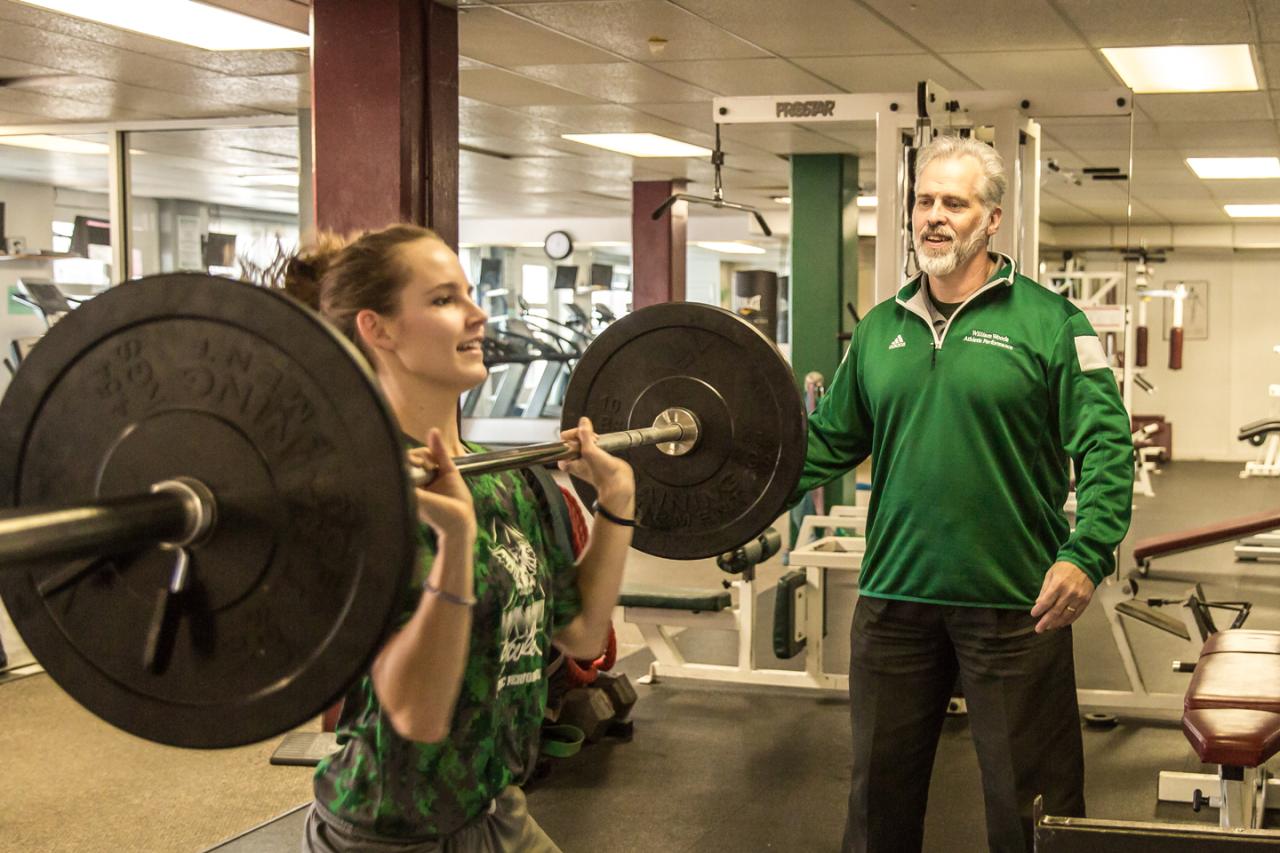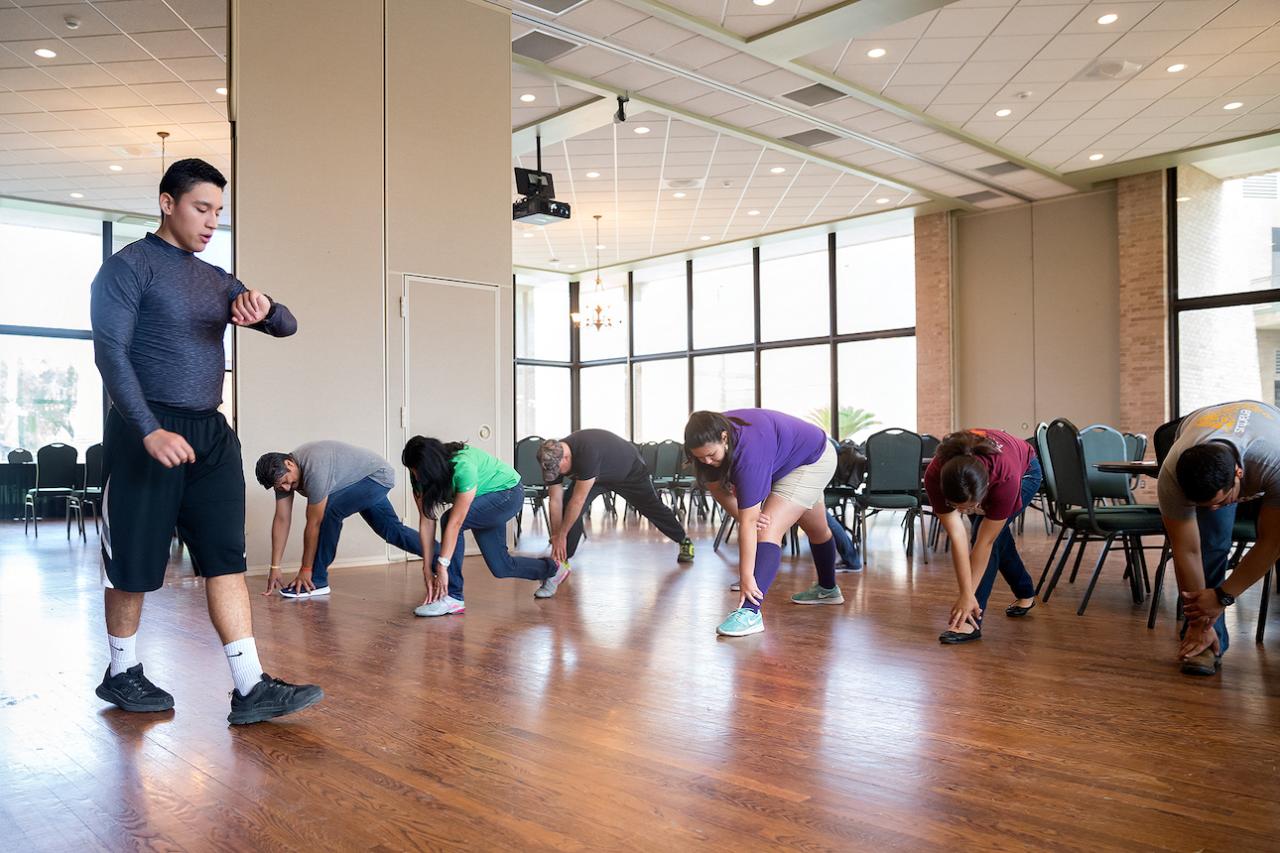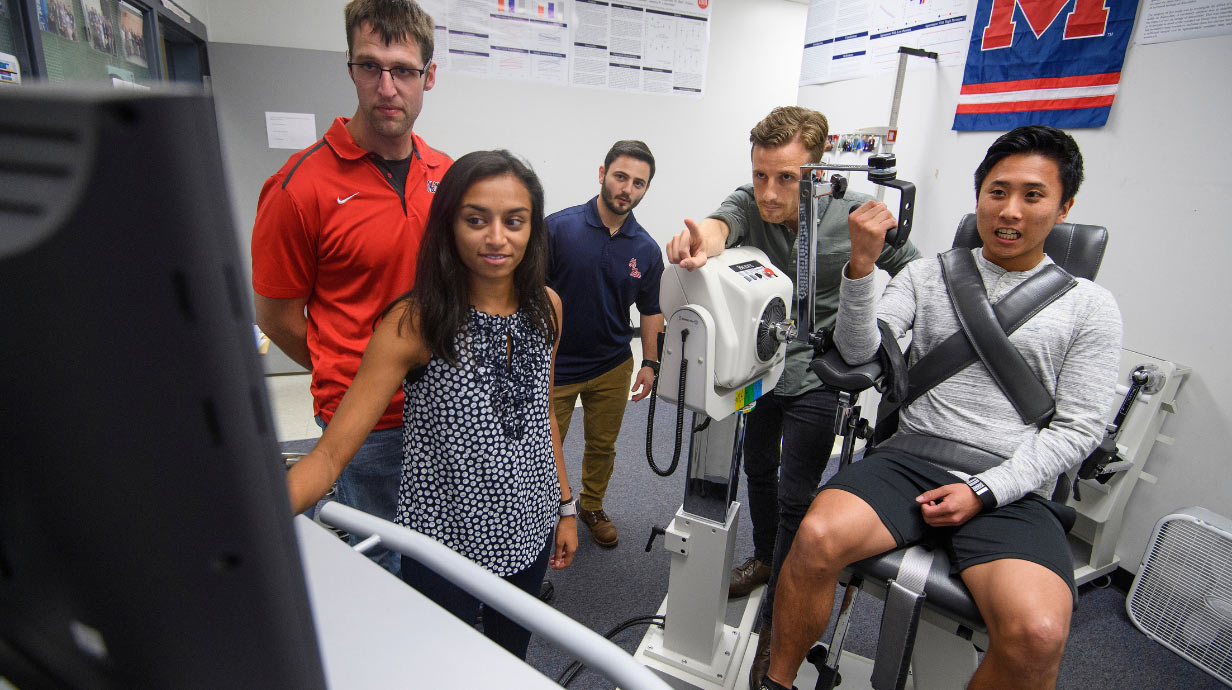
A bachelor’s degree in exercise science opens doors to a fulfilling career dedicated to improving health and well-being. This dynamic field combines scientific principles with practical applications, equipping graduates with the knowledge and skills to empower individuals to live healthier lives.
Exercise science encompasses a wide range of disciplines, including anatomy, physiology, biomechanics, and exercise physiology. By understanding how the human body moves and responds to physical activity, exercise scientists can design effective exercise programs, promote healthy habits, and prevent injuries.
Introduction to Exercise Science

Exercise science is a multifaceted discipline that explores the impact of physical activity on human health and performance. It encompasses various aspects of human movement, including physiology, biomechanics, psychology, and nutrition, to understand how exercise affects the body and mind.
Exercise science plays a crucial role in promoting health and well-being by providing evidence-based knowledge and strategies for individuals to improve their physical fitness, manage chronic diseases, and enhance their overall quality of life.
Real-World Applications of Exercise Science
Exercise science has numerous real-world applications across various fields, including:
- Health and Wellness: Exercise science professionals work with individuals to develop personalized exercise programs that address their specific health goals, such as weight management, cardiovascular health, and muscle strength. They also provide guidance on proper exercise techniques and injury prevention.
- Sports Performance: Exercise science principles are applied to enhance athletic performance in various sports. Coaches and trainers use exercise science knowledge to optimize training programs, improve technique, and reduce the risk of injuries.
- Rehabilitation: Exercise science is integral to physical therapy and rehabilitation programs. Therapists use exercise interventions to help patients recover from injuries, improve mobility, and regain function.
- Public Health: Exercise science research informs public health initiatives aimed at promoting physical activity and reducing sedentary behavior. This includes developing community-based programs, promoting active transportation, and advocating for policies that support physical activity.
Bachelor’s Degree Programs in Exercise Science

A bachelor’s degree in exercise science provides a comprehensive understanding of the human body’s response to physical activity and the principles of exercise prescription. This degree prepares graduates for a wide range of careers in the fitness, healthcare, and research fields.
Typical Curriculum, Bachelor’s degree in exercise science
A typical bachelor’s degree program in exercise science includes a combination of core courses and elective courses.
Core Courses
Core courses provide a foundational understanding of the principles of exercise science. These courses cover topics such as:
- Anatomy: This course examines the structure of the human body, including bones, muscles, joints, and organs. Students learn about the different systems of the body and how they work together.
- Physiology: This course focuses on the functions of the human body, including how the body uses energy, regulates temperature, and responds to stress. Students learn about the different physiological systems, such as the cardiovascular, respiratory, and nervous systems.
- Biomechanics: This course explores the mechanics of human movement. Students learn about the forces that act on the body during movement, the principles of leverage, and the factors that contribute to efficient and effective movement.
- Exercise Physiology: This course examines the body’s response to exercise. Students learn about the physiological adaptations that occur with training, the effects of different types of exercise, and the principles of exercise prescription.
Elective Courses
Elective courses allow students to specialize in areas of interest within exercise science. Examples of elective courses include:
- Sports Nutrition: This course focuses on the nutritional needs of athletes and active individuals. Students learn about the role of macronutrients and micronutrients in performance, the principles of meal planning for athletes, and the use of supplements.
- Exercise Psychology: This course explores the psychological factors that influence exercise behavior. Students learn about the theories of motivation, the role of self-efficacy, and the strategies for promoting adherence to exercise programs.
- Athletic Training: This course focuses on the prevention, diagnosis, and treatment of athletic injuries. Students learn about the principles of injury assessment, rehabilitation techniques, and the role of athletic trainers in sports medicine.
Career Paths for Exercise Science Graduates

Exercise science graduates are equipped with a broad knowledge base and practical skills that make them highly sought-after professionals in various healthcare and fitness settings. The field offers diverse career paths, allowing graduates to tailor their professional journey to their interests and passions.
Career Paths in Fitness Centers
Exercise science graduates play a vital role in promoting health and well-being within fitness centers. They are responsible for designing and implementing personalized exercise programs, providing guidance on proper exercise techniques, and motivating individuals to achieve their fitness goals.
- Personal Trainer: Personal trainers work one-on-one with clients to develop and implement customized fitness programs. They assess fitness levels, set goals, and provide guidance on nutrition and lifestyle modifications.
- Fitness Instructor: Fitness instructors lead group exercise classes, such as yoga, spin, and Zumba. They are responsible for creating a safe and effective workout environment while motivating participants to achieve their fitness goals.
- Fitness Center Manager: Fitness center managers oversee the day-to-day operations of fitness facilities. They manage staff, develop programs, and ensure the safety and well-being of members.
Career Paths in Hospitals and Healthcare Settings
Exercise science graduates are also highly sought-after in hospitals and healthcare settings. They work alongside medical professionals to help patients recover from injuries and illnesses, manage chronic conditions, and improve overall health and well-being.
- Exercise Physiologist: Exercise physiologists assess patients’ physical limitations and develop individualized exercise programs to address specific health concerns. They may work with patients recovering from heart attacks, stroke, or surgery, or those with chronic conditions such as diabetes or arthritis.
- Cardiac Rehabilitation Specialist: Cardiac rehabilitation specialists work with patients who have experienced heart problems to help them recover and regain their fitness levels. They design and supervise exercise programs, provide education on lifestyle modifications, and monitor patients’ progress.
- Certified Athletic Trainer: Certified athletic trainers work with athletes to prevent injuries, provide immediate care for injuries, and rehabilitate athletes back to their previous level of performance. They work in a variety of settings, including schools, colleges, and professional sports teams.
Career Paths in Research Institutions
Exercise science graduates with a strong research background can pursue careers in academia or research institutions. They contribute to the advancement of knowledge in exercise science through conducting research, analyzing data, and publishing their findings.
- Research Scientist: Research scientists design and conduct research studies on various aspects of exercise science, such as the effects of exercise on chronic diseases, the mechanisms of muscle growth, and the role of exercise in aging. They analyze data, write reports, and present their findings at conferences and in publications.
- University Professor: University professors teach exercise science courses, conduct research, and mentor students. They are experts in their field and contribute to the education and training of future exercise science professionals.
Closing Notes: Bachelor’s Degree In Exercise Science
A bachelor’s degree in exercise science is a valuable investment in your future, offering a rewarding career path with the potential to make a real difference in people’s lives. Whether you aspire to work in a fitness center, hospital, research institution, or other settings, this degree provides a strong foundation for success.
Helpful Answers
What are the job prospects for exercise science graduates?
Exercise science graduates have a wide range of career options, including personal trainers, certified athletic trainers, exercise physiologists, health educators, and researchers.
What is the difference between a bachelor’s degree in exercise science and a degree in sports medicine?
While both fields focus on human movement and health, sports medicine is more clinical, focusing on the diagnosis, treatment, and prevention of sports-related injuries. Exercise science takes a broader approach, encompassing fitness, wellness, and health promotion.
What are the admission requirements for exercise science programs?
Admission requirements vary by institution but typically include a high school diploma or equivalent, a minimum GPA, and standardized test scores. Some programs may also require specific coursework in science or math.
Is a master’s degree necessary for a career in exercise science?
While a bachelor’s degree is sufficient for many entry-level positions, a master’s degree can enhance your career prospects and open up opportunities for advanced roles, such as research, teaching, or clinical practice.




